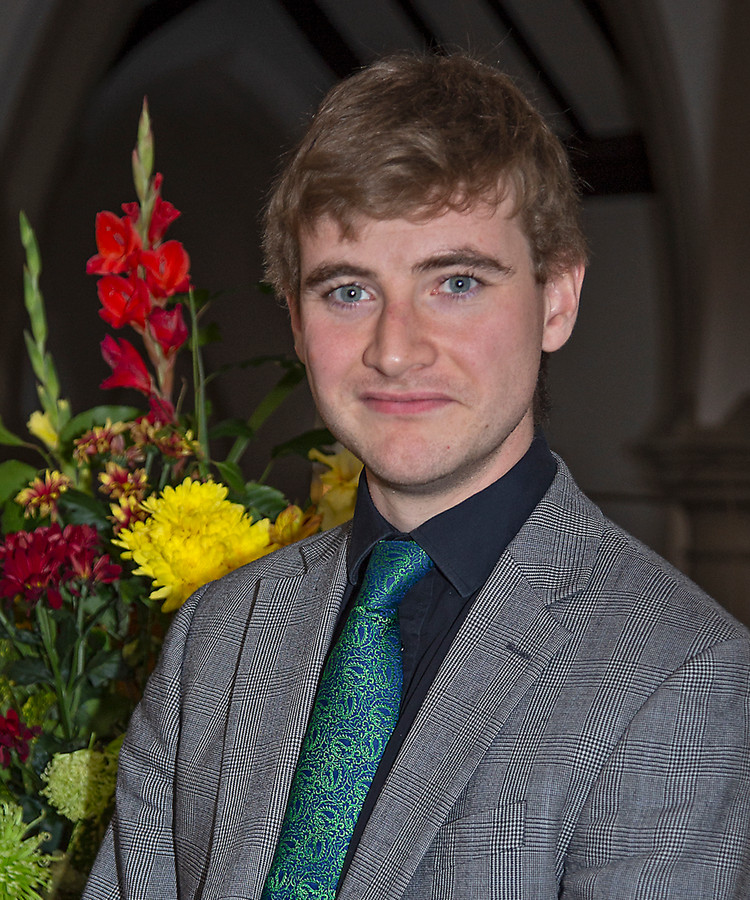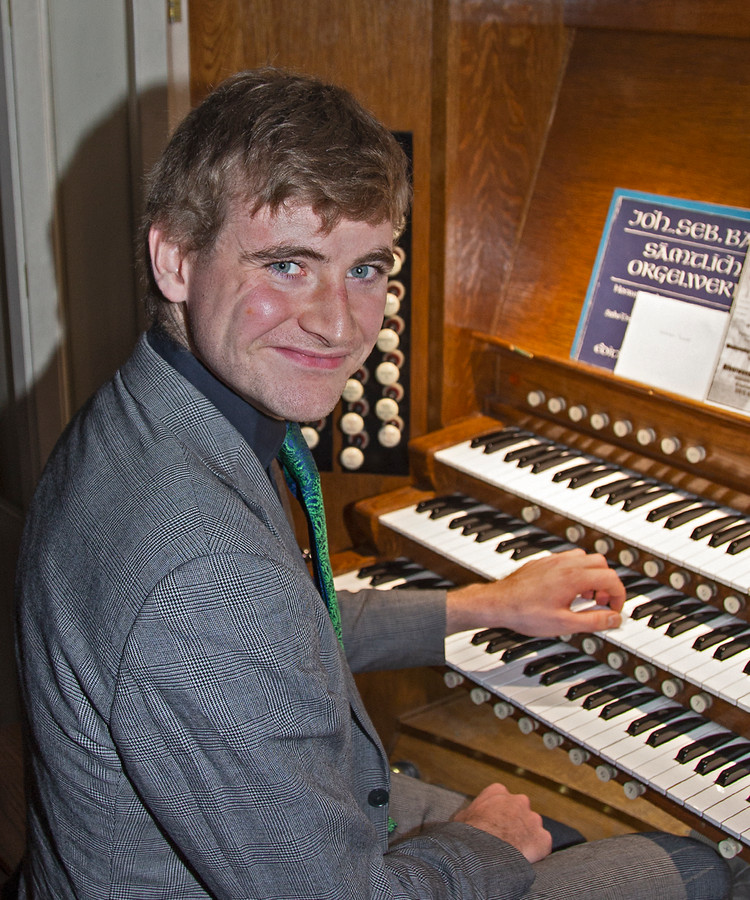Graham THORPE
Organ Recital
Wednesday 16 January 2019 – 1:00-1:40 pm

Following a decade of excellent organ recitals given by students from the Royal College of Music, London, today we welcomed Graham Thorpe to begin the Eleventh Organ Series at Brentwood Cathedral. Graham is now a postgraduate of the RCM, studying with David Graham and specialising in English Romantic repertoire, reflected in his programme today. He completed his undergraduate degree at the Royal Academy of Music, where he studied with Susan Landale and Clive Driskill-Smith, winning several performance and academic prizes. He is a Pettman Organ Scholar at the London Oratory, where he accompanies the Oratory Junior Choir. Prior to this he was assistant organist at St. Michael’s, Cornhill. He is in demand as a recitalist and accompanist, having recorded on Radio 3 as an accompanist on both organ and piano. Notable recital venues include St. Paul’s, Westminster, Hereford and Southwark Cathedrals. Graham is an RCM Scholar supported by a Richard Newton Scarth Award. He is a Fellow of the Royal College of Organists and recently won the Worshipful Company of Musicians F. E. Smith medal. He is also a recipient of the RCO Peter Wiles Scholarship. He is passionate about liturgical accompaniment and wishes to return to cathedral music when he completes his studies in London.
Graham engaged with his audience immediately by introducing today’s programme and describing the pieces – mainly post-Romantic music – which he would be performing for us. His opening work was composed in 1911 by the highly regarded English organist and composer, Edward Bairstow (1874-1946): Toccata-Prelude on ‘Pange Lingua’, a movement with a glittering beginning, followed by contrasting dynamics in this plain-song reflection, hence the ‘cantabile’ phrasing and spiritual feel to the notation. It ended soothingly to complete the melodic mood.
Programme
| E. Bairstow | Toccata – Prelude on ‘Pange Lingua’ |
| H. Howells | Psalm Prelude Set 2
No.1 De Profundis |
| E. Bairstow | Prelude on ‘Veni Emmanuel’ |
| J.S. Bach | An Wasserfluessen Babylon BWV 635 |
There was much more Bairstow to come, but Graham continued his recital with a work by a contemporary composer: Herbert Howells (1892-1983), popular with organists world-wide and known for his large output of Anglican church music. We heard his beautiful Psalm Prelude Set 2, No. 1 ‘De profundis’, which Graham played with sensitivity and understanding of the composer’s sentiments, for eight glorious minutes!
 Returning to Edward Bairstow, Graham aptly chose the Prelude on ‘Veni Emmanuel’, the last from ‘Three Short Preludes’: an ‘Andante Tranquillo’ for Advent, using the familiar ‘O come, O come, Emmanuel’ theme and, even if the harmonies became increasingly complex, we soon welcomed back the tune. In this later composition, Bairstow is believed to have been influenced by Brahms, such as in the cross rhythms of the right-hand accompaniment, but also in the serious style of tone. It is worth noting that Bairstow was organist at Westminster Abbey for six years and at York Minster from 1913 until his passing in 1946, having been knighted in 1932 for his vast musical contributions.
Returning to Edward Bairstow, Graham aptly chose the Prelude on ‘Veni Emmanuel’, the last from ‘Three Short Preludes’: an ‘Andante Tranquillo’ for Advent, using the familiar ‘O come, O come, Emmanuel’ theme and, even if the harmonies became increasingly complex, we soon welcomed back the tune. In this later composition, Bairstow is believed to have been influenced by Brahms, such as in the cross rhythms of the right-hand accompaniment, but also in the serious style of tone. It is worth noting that Bairstow was organist at Westminster Abbey for six years and at York Minster from 1913 until his passing in 1946, having been knighted in 1932 for his vast musical contributions.
Graham then performed ‘An Wasserflussen Babylon, BWV 653’ by J. S. Bach (1685-1750), a chorale melody taken from a Lutheran hymn by Wolfgang Dachstein; the text is a paraphrase of Psalm 137, hence the comforting and sacred nature of this work. It was a clear reminder of why so many of the later composers have drawn inspiration and instruction from the great master, J. S. Bach, and Graham’s playing was true testament to this sublime Baroque piece.
The climax of this lunchtime recital was Bairstow’s Sonata in E flat, which was an exciting journey in dynamics, harmonies and emotions, also showing off Brentwood Cathedral’s organ brilliantly through Graham’s registrations. Composed in 1937, while Bairstow was holidaying on the Isle of Arran, it has three contrasting movements, opening in a sombre manner with ‘Andante serioso ma con moto’, which soon gathers pace with dramatic and emotional effects. ‘Allegro giocoso’ is a lively and energetic middle movement and Graham’s technical expertise held our attention through to the last fiery chords. Finally, the deeply reflective ‘Maestoso’, with its strong chorale style, returned the performer and listeners to a calm conclusion. Graham played with conviction and passion and, without any doubt, succeeded in converting his audience to the immense musical treasures of post-Romantic organ music! On behalf of our Director of Music, Andrew Wright, we thank Graham Thorpe for his outstanding recital today and we hope to hear him again soon at Brentwood Cathedral.
Julia Bentham
Admission is free, but we welcome your contribution towards our expenses. If you are a UK tax payer please consider using Gift Aid to increase the value of your donation by a quarter.
Photos – Graham Hillman
Brentwood Cathedral Music Dept©2023
